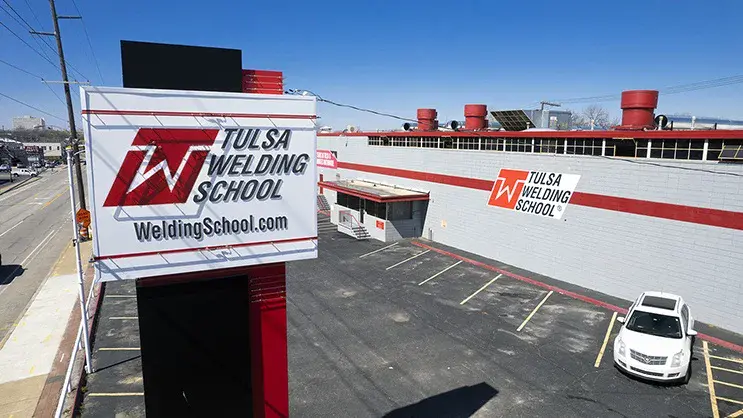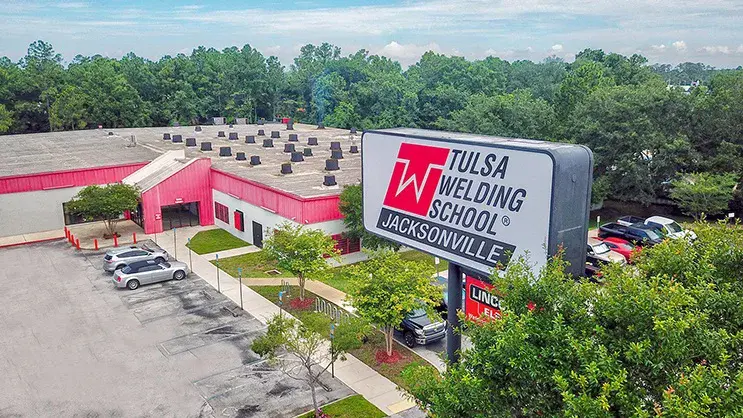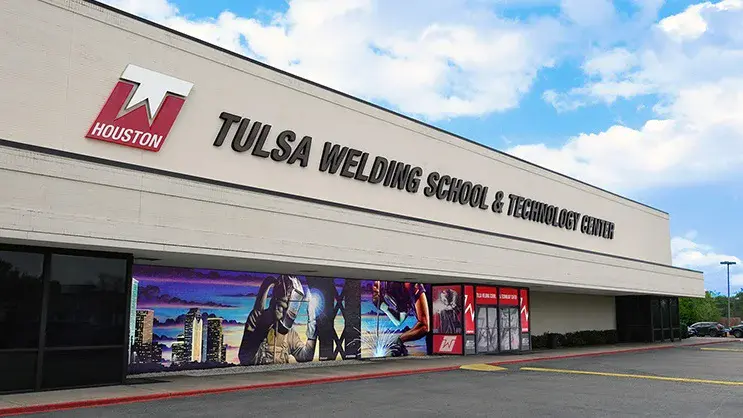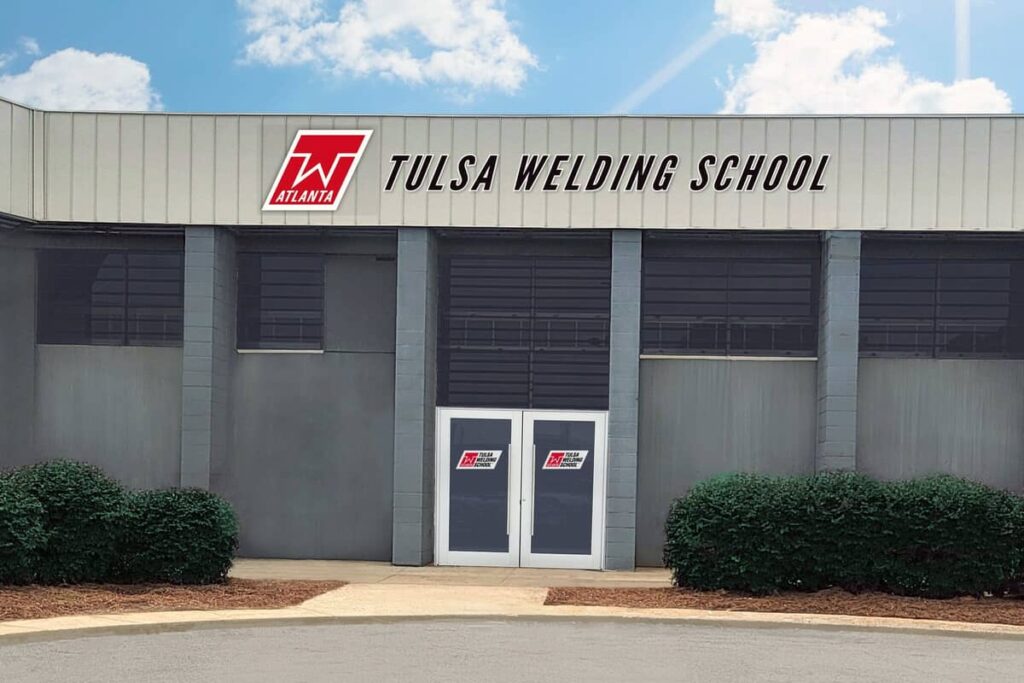TWS is a Great Training Option for Everyone
Learn more about how we can prepare you to advance your career.
Millwrights are the tradespeople who install, maintain, and repair the heavy machinery used in factories, power plants, and industrial facilities. Their work keeps operations moving, from conveyor belts to turbines to packaging equipment. If you’re interested in a career that combines mechanical skill, technical precision, and problem-solving, becoming a millwright might be the right path for you.
At Tulsa Welding School, you can begin preparing for this career without a four-year degree. The Advanced Industrial Maintenance Technology program offers focused training to help students gain the skills often required for millwright jobs in less than a year.
What Does a Millwright Do and Why It Matters
Millwrights work behind the scenes in industries that depend on large, complex equipment. They’re the ones who assemble new machines, align and calibrate moving parts, and fix problems that can cause costly downtime.
Common Millwright job duties include:
- Reading blueprints and schematics
- Assembling and disassembling machinery
- Aligning shafts, motors, and gears
- Performing preventive maintenance
- Diagnosing and repairing mechanical problems
- Using hoists, cranes, and hand tools
- Working with hydraulics, pneumatics, and electrical systems
Millwrights may work in sectors like manufacturing, food processing, power generation, or logistics. Their role often requires precision and patience, especially when machinery must be dismantled and rebuilt to exact specifications.
Have You Considered a Career in the Skilled Trades?
Fill out the form to recieve a no obligation info packet.
The job involves both physical activity and technical thinking, making it a good fit for people who enjoy working with their hands and solving problems as they arise.
Millwright Training: Learn by Doing, Not Just Watching
Becoming a millwright takes more than just watching someone else do the work. You need hands-on experience using the tools, materials, and machines common to the trade.
Students at TWS learn through a combination of classroom instruction and lab-based training. You won’t just study how a motor works—you’ll wire one, troubleshoot it, and install it as part of a functioning system.
Training topics include:
- Mechanical drive systems (gears, belts, bearings)
- Industrial electricity and circuits
- Motor controls and wiring
- Hydraulics and pneumatics
- Equipment installation and alignment
- Diagnostics and repair
- Safety and lockout/tagout procedures
Instructors bring real-world experience to the classroom, helping students apply concepts to tasks they’ll perform on the job. By the end of the program, graduates have worked through hands-on exercises that mirror actual millwright responsibilities.
How to Become a Millwright Without a Four-Year Degree
Many millwrights begin their careers through a training program or apprenticeship rather than a traditional college degree. What matters most to employers is whether you can do the work safely and correctly—not whether you’ve spent four years in a lecture hall.
Tulsa Welding School’s Advanced Industrial Maintenance Technician program is a focused training option that can be completed in about seven months. It covers the core concepts and hands-on techniques that prepare you for entry-level work in millwright or industrial maintenance technician roles.
This shorter path appeals to students who want to start working sooner, avoid long-term college debt, or prefer active, hands-on learning environments. Whether you’re just out of high school or changing careers, it’s a practical route to a skilled trade.
After completing training, some students begin working right away. Others choose to apply for apprenticeships, where they can continue learning under the guidance of experienced millwrights. Either way, a solid training foundation makes you more competitive when applying for jobs.
What You’ll Need: Millwright Qualifications
Millwrights need a mix of technical knowledge, physical ability, and workplace readiness. Here’s what many employers look for in entry-level candidates:
- Technical Skills: Understanding of mechanical systems, electrical wiring, blueprints, and measurement tools.
- Hands-On Experience: Time spent working with actual equipment, not just classroom learning.
- Attention to Detail: Ability to measure, align, and install parts accurately.
- Problem-Solving: Confidence in diagnosing why a machine isn’t working and how to fix it.
- Physical Stamina: Ability to stand, lift, and work in tight spaces or at heights.
- Safety Awareness: Knowledge of proper procedures to prevent injuries or damage.
In addition to these qualifications, a positive attitude and willingness to learn can go a long way. Millwrights often work in teams, and reliability is valued just as much as technical knowledge.
While specific licensing requirements can vary by state or employer, many companies prefer candidates with formal training. Certification in OSHA 10 safety standards is often a plus and is included as part of the Advanced Industrial Maintenance Technician program.
Millwright Technician Careers: What Happens After Training?
Graduates of a millwright-focused training program may qualify for a variety of entry-level positions, depending on the industry and location. Job titles might include:
- Millwright Apprentice
- Industrial Maintenance Technician
- Mechanical Technician
- Machine Installer
- Facilities Maintenance Tech
These jobs are found in manufacturing plants, food processing facilities, refineries, power stations, and other industrial environments. Duties vary by company, but the core goal is the same: keep machines operating safely and efficiently.
Some workers begin in a general maintenance role and move into specialized millwright work as they gain experience. Others may pursue journeyman status through a formal apprenticeship.
The need for trained millwrights continues as more industries rely on automation and mechanical systems. As older workers retire, opportunities for new technicians are expected to remain steady.
Start Strong: Train for a Millwright Career at TWS
If you’re ready to start building the skills for a career in industrial maintenance or millwright work, the Advanced Industrial Maintenance Technician program at Tulsa Welding School offers a direct, hands-on path. Instructors with trade experience help you learn by doing, and career services are available to support your job search after graduation.
To learn more about our trade school programs, contact us at Tulsa Welding School or call (855) 981-7313.








